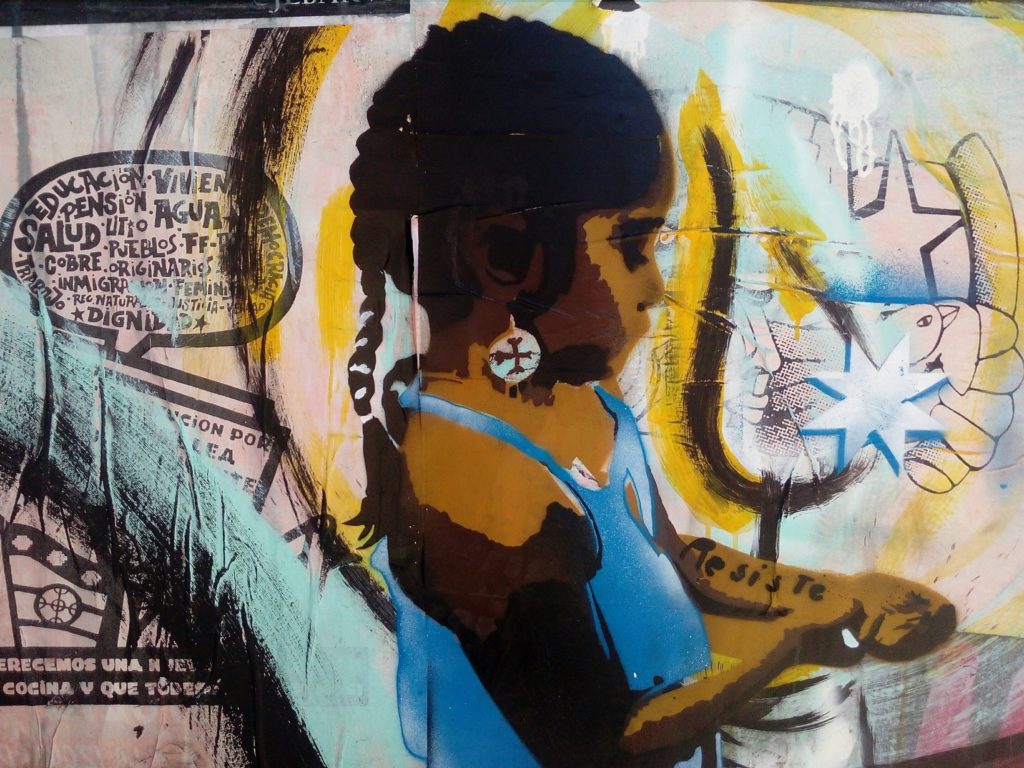On the last Saturday of November the Coordination of Original Nations, born during the uprising, called for a trawün (the word for meeting in Mapudungun) in the ceremonial center of Lo Prado, on the periphery of Santiago, Chile.
Mapuches living in various neighborhoods of Santiago attended (Puente Alto, Ñuñoa, Pintana, among others), where they had already carried out local trawüns. The meeting began with a ceremony directed by three longkos (heads of communities), followed by singing and praying by around 60 people under the high sun. Once receiving permission from the pachamama, they began debating in two groups regarding what position they plan to take in regards to Chile’s new constitution.
Women, dressed in traditional clothing, participated as much or more than men, who wore blue headbands. Two positions quickly became clear.

The first proposes participating in elections for the Constituent Assembly. But parties that signed the agreement refused to allow the possibility that Indigenous people would have their own electoral districts, with 15% of the elected, similar to the percent of Indigenous people that live in Chile. There is a lot of discussion, then, about how to proceed.
This position has been gaining ground during the uprising, though it was born nearly 20 years ago, under the name of “plurinationalism.” As the Mapuches do not want to be elected within existing parties, some participants (including some women) propose the creation of a Mapuche electoral party.
This stream of thought appears to be more common in the cities, especially in Santiago, which is home to hundreds of thousands of Mapuche people. But its nucleus of support is among those who emigrated from Wall Mapu to the city to study at university. Their discourse is powerful and well reasoned, and they argue that there is “not much time” to get started, as the process of electing constituents will begin in April.
The second current defends self-determination and autonomy, which are the traditional positions of the Mapuche communities in the south of Chile. They are those most affected by state repression and by the militarization of their territories, as well as by displacement by forestry companies. It is their communities who resist and take back lands, and above all, who keep the flame of the Mapuche nation and identity alive.
“We have our own government and our own parliament, we don’t need the politicians,” stated one middle aged woman. Another young man asked: “Do we really want a seat inside winka (white) politics?”
If it is true that the uprising in Chile that began in October 2019 closes a cycle that was opened on September 11, 1973 with Pinochet’s coup d’etat, it must also be true that a new cycle is opening, though we still don’t know what its key characteristics will be.
But from what we can see in the streets of Santiago, this cycle will have two key protagonists: the police state, the armed wing of the dominant classes; and the popular sectors in urban neighborhoods and in Wall Mapu. The pulse between these two forces will determine the future of Chile.
Translated by Toward Freedom with permission of the author. Published in Spanish at Desinformemonos.
Author Bio:
Raúl Zibechi is a journalist and popular educator who accompanies grassroots processes in Latin America.
